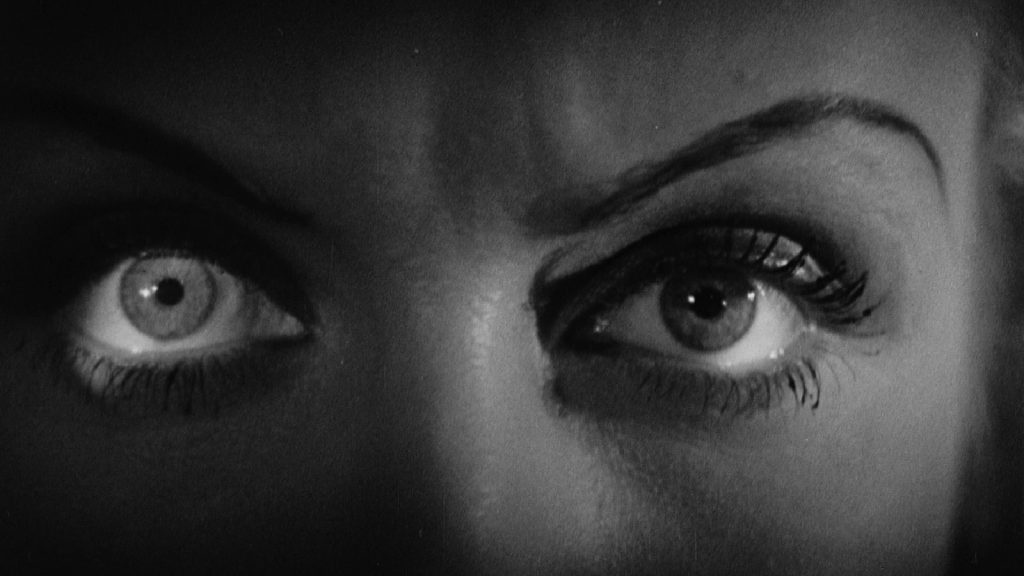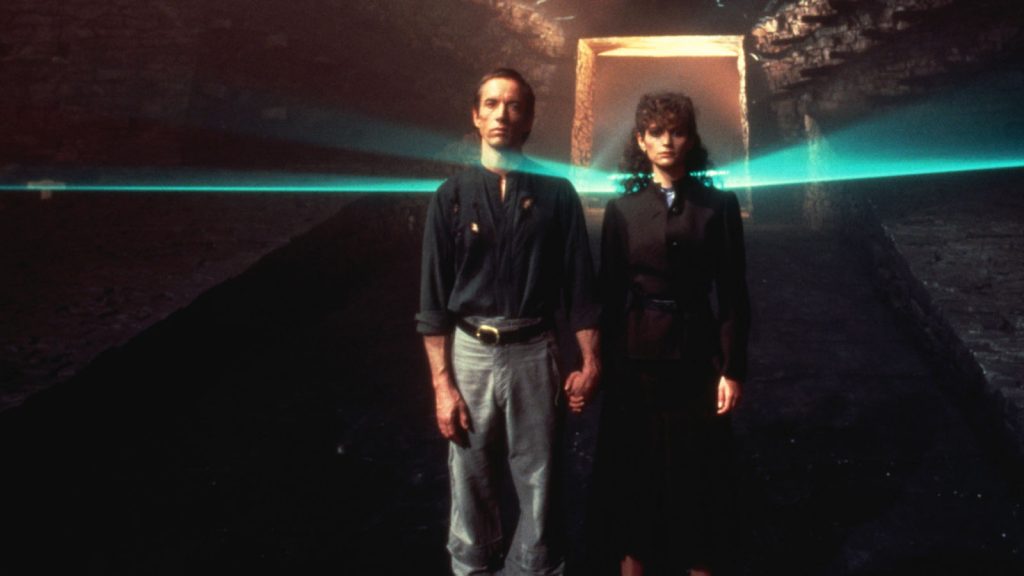
There are horror movies in which Christmas is present, as if incidentally, and there are horror movies in which Christmas is the crux. The latter often feature a gimmick. Santa Claus ditches his sleigh for a spin of slaying. Someone is impaled with the top of a Christmas tree, which is an awkward way to deal a mortal blow.
But then there is Bob Clark’s Black Christmas (1974), a film that makes itself a present of Yuletide terror. It is a nightmare-inducer. There will be no visions of dancing sugar plums here. The premise is simple: we’re at a sorority house. Each of the women have their own issues with which to cope during the holiday season. One (Olivia Hussey) is pregnant; another (Margot Kidder with a tart tongue) has a drinking problem and a selfish mom who doesn’t want her coming home. But being that it’s Christmas, the festive show must go on. The girls are going to make the most of the holiday, all for one and one for all–style. Christmas may require a certain amount of pluck, as anyone who has experienced a blue (or worse) Christmas—or slate of them—can attest.
The women are beleaguered by a series of obscene phone calls, and we huddle around the receiver with them as they listen in on the latest. It’s a doozy—the type of thing that is sure to produce coal in the stocking, if that. Let’s just say that the principal c-word isn’t Christmas. Before phones rotted minds in the next century, they were sometimes weaponized in 1970s horror films. Any time the phone rings in Black Christmas—and with each subsequent ringing (and we’re not talking the bells on Christmas day)—we feel dread. This is a coarse film of paradoxical solemnity. The Christmas spirit is in consistent evidence (everything is suitably decked out, lights twinkle, trees are trimmed), but it’s as if we’re witnessing it from some remove rather than drinking directly from its wassail bowl. The sacred and the profane are like two reindeer tethered side by side at the head of Santa’s sleigh on a night when Rudolph had gone missing.

Clark is an interesting case. He’s similar to Don Siegel (Invasion of the Body Snatchers, The Big Steal, Flaming Star) before him, in that his helming of a given picture makes you go “Huh” when you learn of another so stylistically different that he also directed. Then again, Clark, who gave us A Christmas Story (1983) and foisted Porky’s (1981) on the world, combined what would become aspects of those two films in this earlier one. On the Porky’s side of the naughty/nice list in Black Christmas, we are treated to a line like, “These broads would fuck the Leaning Tower of Pisa if they could get up there,” from their otherwise doting—and also booze-guzzling—housemother (Marian Waldman). But the women have real concern for each other, and the lead cop (Keir Dullea) is neither a creep nor an incompetent.
Black Christmas slots as a slasher (one of the first), but it’s more of an advancer. It trails the viewer, coming up behind them, like the Christmas season itself. This time of year has a certain relentlessness. And while one wouldn’t want to say that Christmas stalks us, there’s something to the idea, depending on one’s mood and mental state, which Black Christmas plays up.
This is a finesse horror film and very well made. Instead of a mother’s scream when the body of her girl is found in the woods during an effective search scene with plenty of volunteers—as if they were a group of carolers who’ve lost any reason to sing—there’s a cut to that ringing devil of a phone. Black Christmas is shlock-less and borders on the artful, or has artful flourishes, anyway. It’s solemn but also energizing, whether you are brimming with festal spirit or thinking, “Good God, what a difficult time of the year this is,” but at least you don’t have anyone stabbing you in your bed and wrapping you in cellophane. 🩸

is the author of eight books, including the story collection, If You [ ]: Fabula, Fantasy, F**kery, Hope, a 33 1/3 volume on Sam Cooke’s Live at the Harlem Square Club, 1963, Meatheads Say the Realest Things: A Satirical (Short) Novel of the Last Bro, and a book about 1951’s Scrooge as the ultimate horror film. His work has appeared in Harper’s, The Atlantic, Rolling Stone, The New York Times, Vanity Fair, The Daily Beast, Cineaste, Film Comment, Sight and Sound, JazzTimes, The New Yorker, The Guardian, and many other venues. He’s completing a book called And the Skin Was Gone: Essays on Works of Horror Art. His website is colinfleminglit.com, where he maintains the Many Moments More journal, which, at 2.7 million words and counting as of autumn 2023, is the longest sustained work of literature in history.
In theory—well, maybe—one is not supposed to laugh while watching the events of Silent Night, Deadly Night (1984) unfold, but damn does this feel cathartic and mirth-inducing.
BY COLIN FLEMING | December 25, 2024
This rarity by the director of Logan’s Run and Orca may be one of the silliest slasher films ever made, but it’s also irresistible fun, both well-executed and rapidly paced.
BY LAURA KERN | October 31, 2021
Sometimes, when feelings of déjà vu extend beyond a fleeting moment, it’s enough to make a nonbeliever consider the possibilities of other...
BY LAURA KERN | November 6, 2024

This pre-Code offering packs a lot of story into its typically brisk running time, with several plot threads weaving together a (not always successful) tapestry of spooky and criminal doings.
READ MORE >
BY ANN OLSSON | Month 00, 2021

In what could be the fastest-resulting rape revenge movie, a drunken lout brutally forces himself on Ida, the young woman who doesn't return his affections, during a party over Labor Day.
READ MORE >
BY LAURA KERN | Month 00, 2021

Beast is a lot of movies in one package - fractured fairy tale, belated-coming-of-age story, psychological drama, regional horror film - but above all it's a calling card for its leading lady, Jessie Buckley.
READ MORE >
BY LAURA KERN | Month 00, 2021